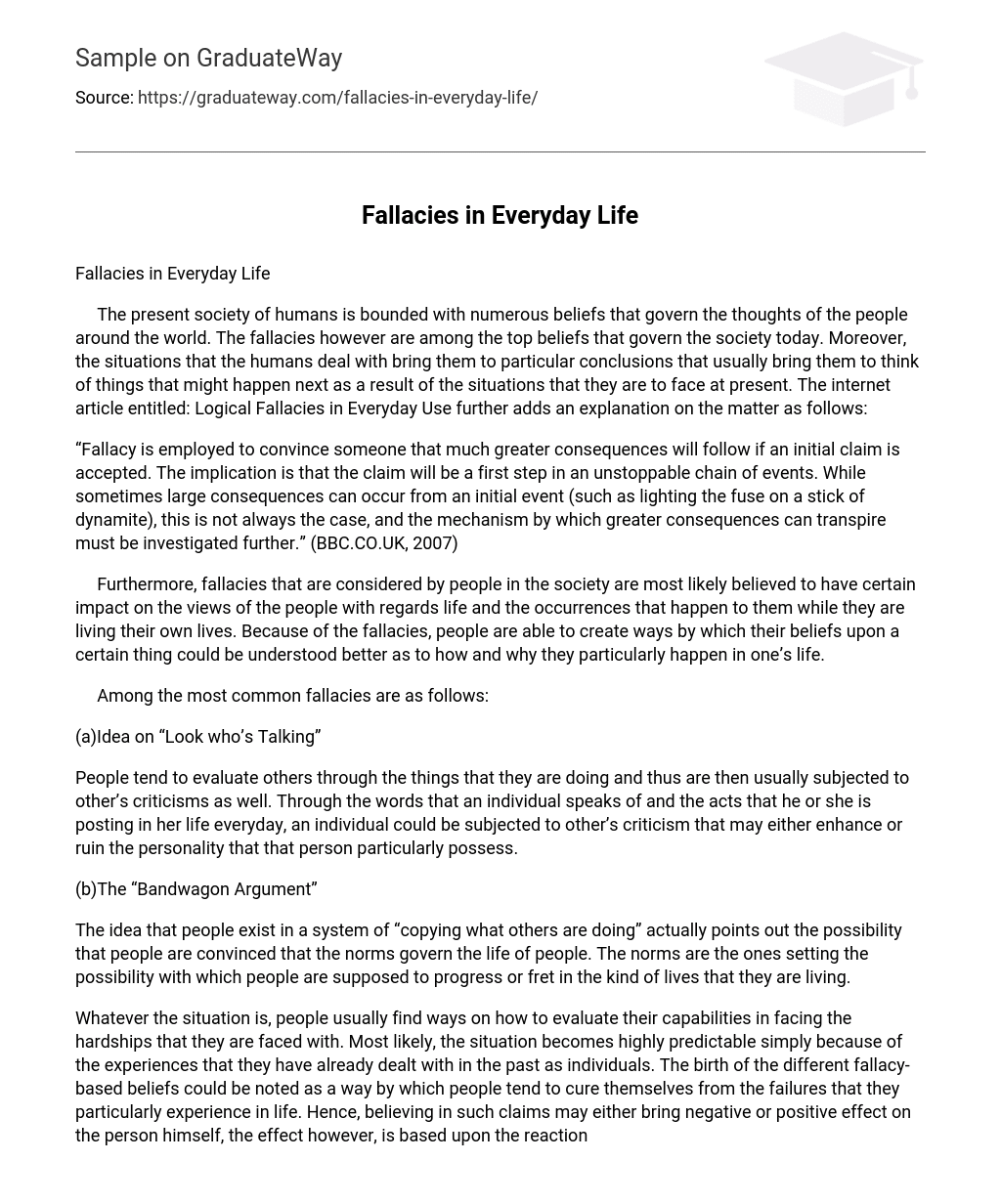The present society of humans is bounded with numerous beliefs that govern the thoughts of the people around the world. The fallacies however are among the top beliefs that govern the society today. Moreover, the situations that the humans deal with bring them to particular conclusions that usually bring them to think of things that might happen next as a result of the situations that they are to face at present. The internet article entitled: Logical Fallacies in Everyday Use further adds an explanation on the matter as follows:
“Fallacy is employed to convince someone that much greater consequences will follow if an initial claim is accepted. The implication is that the claim will be a first step in an unstoppable chain of events. While sometimes large consequences can occur from an initial event (such as lighting the fuse on a stick of dynamite), this is not always the case, and the mechanism by which greater consequences can transpire must be investigated further.” (BBC.CO.UK, 2007)
Furthermore, fallacies that are considered by people in the society are most likely believed to have certain impact on the views of the people with regards life and the occurrences that happen to them while they are living their own lives. Because of the fallacies, people are able to create ways by which their beliefs upon a certain thing could be understood better as to how and why they particularly happen in one’s life.
Among the most common fallacies are as follows:
(a)Idea on “Look who’s Talking”
People tend to evaluate others through the things that they are doing and thus are then usually subjected to other’s criticisms as well. Through the words that an individual speaks of and the acts that he or she is posting in her life everyday, an individual could be subjected to other’s criticism that may either enhance or ruin the personality that that person particularly possess.
(b)The “Bandwagon Argument”
The idea that people exist in a system of “copying what others are doing” actually points out the possibility that people are convinced that the norms govern the life of people. The norms are the ones setting the possibility with which people are supposed to progress or fret in the kind of lives that they are living.
Whatever the situation is, people usually find ways on how to evaluate their capabilities in facing the hardships that they are faced with. Most likely, the situation becomes highly predictable simply because of the experiences that they have already dealt with in the past as individuals. The birth of the different fallacy-based beliefs could be noted as a way by which people tend to cure themselves from the failures that they particularly experience in life. Hence, believing in such claims may either bring negative or positive effect on the person himself, the effect however, is based upon the reaction of the individual with the belief that he is faced with in certain situations.
Bibliography
BBC.CO.UK (2007). Logical Fallacies in Everyday Use. http://www.bbc.co.uk/dna/h2g2/A3816795. August 19, 2007.
Gula, Robert J. (2002).Nonsense: A Handbook of Logical Fallacies. Axios Press, USA. ISBN-10: 0966190858.
Kahane, Howard & Cavender, Nancy M. (2001).Logic and Contemporary Rhetoric: The Use of Reason in Everyday Life. Wadsworth Publishing, USA. ISBN-10: 053453578X.
Tindale, Christopher W. (2007).Fallacies and Argument Appraisal (Critical Reasoning and Argumentation). Cambridge University Press, USA. 1st Edition. ISBN-10: 0521842085.





